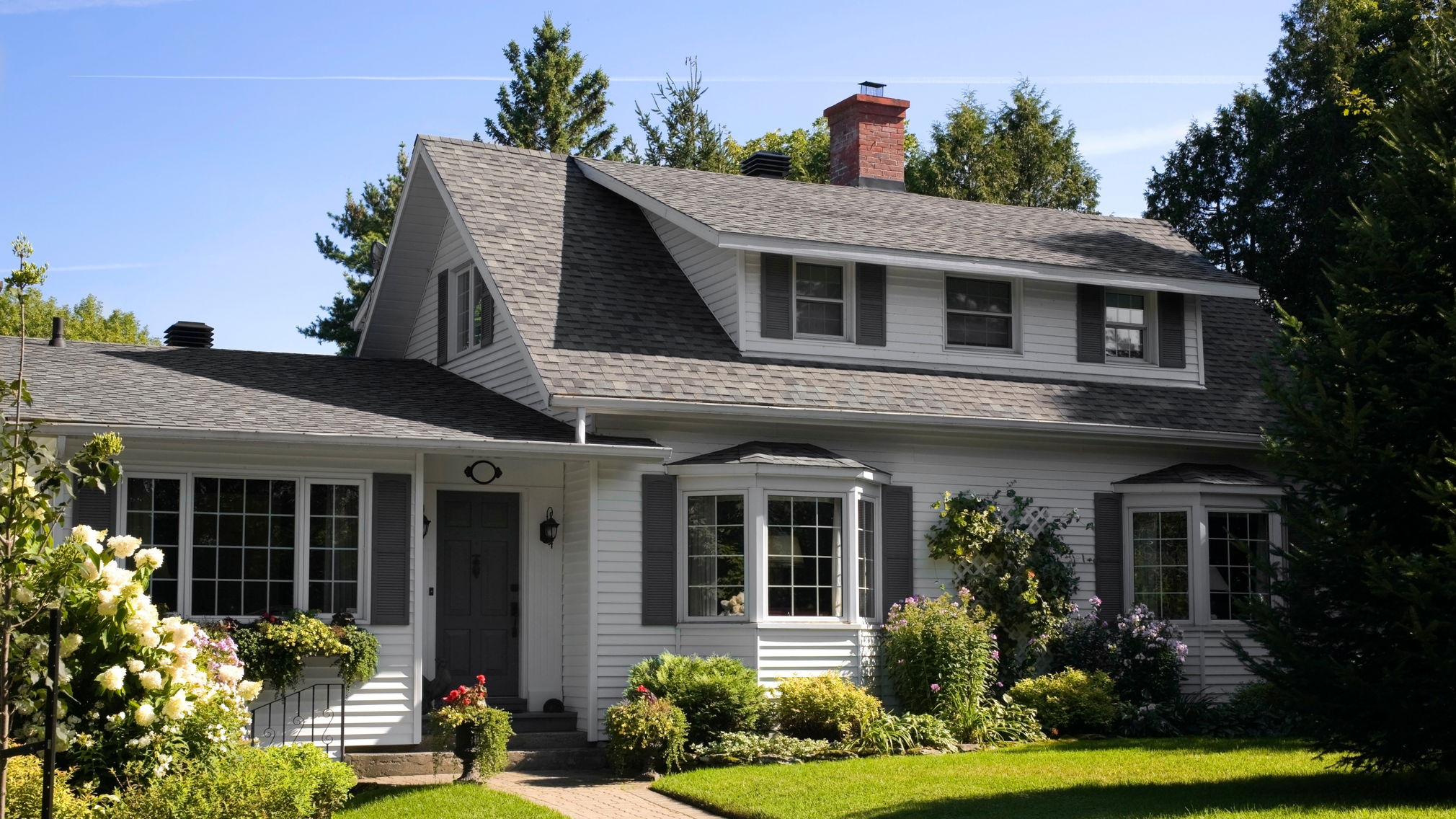FHA Appraisal and Inspection Requirements


Written by Vivian Tejada on January 13, 2025
FHA loans are a popular mortgage option with first-time home buyers, because they offer easier credit qualifications, lower down payment minimums and competitive interest rates. They are insured by the Federal Housing Administration (FHA), which requires borrowers to conduct an FHA-approved appraisal on the home they want to buy. Depending on the results of the appraisal, borrowers may also need to conduct a home inspection. The FHA, which is part of the Department of Housing and Urban Development (HUD), ultimately wants to ensure that borrowers purchase a safe and habitable home, as well as one priced appropriately based on the current housing market.
We’ll explain what this means for you, how the FHA appraisal and inspection process works, and what the appraiser looks for when assessing a home.
What is an FHA appraisal?
An FHA appraisal is a home appraisal performed by an FHA-approved appraiser. The difference between a regular appraisal and an FHA appraisal is that, in addition to evaluating a property’s market value, an FHA appraisal also evaluates a home based on HUD standards.
FHA appraisals are required to secure FHA loans, because they help ensure that the home loan is a good investment for both parties and that the property being bought is safe and meets the minimum standards set by HUD. Even though appraisals aren’t required with other mortgage loan options, non-FHA lenders can set their own lending requirements and are likely to require them. Out of buyers surveyed in 2024, 52% reported including an appraisal contingency in their final offer.
How does an FHA appraisal work?
An FHA appraisal is usually conducted after the buyer and seller have signed a purchase contract. The lender is responsible for ordering an appraisal with an FHA-approved appraiser. The appraiser will then evaluate the local market and the property itself.
Unlike a regular appraisal, which focuses more on how the home’s condition affects its value, FHA appraisals evaluate property safety, security, and soundness. An FHA-approved appraiser performs a more detailed evaluation of the home, checking for major structural or functional damage.
FHA appraisals are required for both older homes and new construction. An FHA appraisal is valid for 180 days after the appraisal has been finalized. However, if an appraisal has been updated, it can be valid for a maximum of one year after its effective date.
FHA appraisal guidelines
FHA appraisers abide by specific guidelines and fill out a special form to document the appraisal process. Here’s what you need to know.
HUD’s Minimum Property Standards
In addition to meeting local building codes and having no significant defects, FHA-insured homes need to be structurally sound, safe, and livable. FHA-approved appraisers use the HUD's Minimum Property Standards to evaluate these key areas. Here’s what the appraiser will check to ensure the property standards are met:
- Structurally sound: Appraisers check the home’s exterior walls, interior walls, roof, foundation, floors, and beams for strength. There should be no major cracks or other damage that would compromise the structural integrity of the home.
- Safe: Appraisers check the home's systems for any hazards that could pose a risk to the health or safety of the home’s inhabitants. They look for fire and environmental hazards, such as exposed wiring, lead-based paint, and mold accumulation.
- Liveable: Appraisers test the home’s systems to make sure basic utilities are accessible and functioning. The home must be able to circulate water, electricity, and proper heating.
Single-Family Housing Policy Handbook
When a property doesn’t comply with FHA guidelines, appraisers must note the property’s safety concerns and document the repairs needed to bring the property into compliance. They also need to include the estimated cost of these repairs. FHA-approved appraisers use the HUD’s Single-Family Housing Policy Handbook to check for specific conditions within the home. To detect these conditions, the appraiser must check all the following areas of a home:
- Foundation
- Roof
- Siding
- Drywall
- Chimney
- Flooring
- Crawl spaces
- Heating systems
- Sewage systems
- Water systems
- Electrical appliances
- Driveway and sidewalks
- Lighting and power lines
- Soil surrounding the home
Uniform Residential Appraisal Report
FHA appraisers use the Uniform Residential Appraisal Report to document their evaluation of a property. Also known as Form 1004, this document includes information about a home’s characteristics, such as the year it was built, number of rooms, and square footage. It also includes information about the property’s value, such as market conditions, neighborhood analysis, and comparable properties (comps) that were used to determine the home’s value.
FHA inspection requirements
FHA inspections are not necessarily required. However, if an appraiser suspects there may be property issues that fall outside of their scope, they might request a home inspection.
Appraisers are required to give a specific reason for their request, particularly if the inspection is motivated by a mechanical or structural flaw. An appraiser might order a home inspection if they find any of the following property issues during their appraisal:
- Termite infestation
- Drainage problems
- Leaky or worn-out roof
- Faulty plumbing, heating or electrical systems
- Structural failure in framing members
- Cracked masonry or foundation damage
Even if your appraiser doesn’t order a home inspection, getting a home inspected before buying is wise, especially if you have a home inspection contingency in your purchase contract. About two thirds of buyers (66%) reported in a 2024 Zillow survey that their final offer was contingent on the property passing a home inspection. If the home inspector finds damage that significantly impacts property value, you might be able to persuade the seller to either lower the sales price to offset the cost of repairs, or have them pay for the repairs.
By handling necessary repairs, you could bring the property into compliance with FHA standards and move forward with your FHA loan. If neither you nor the seller are willing to pay for the necessary repairs, you might have to look for another home.
Pro tip: While it’s possible to back out of a purchase contract without a home inspection contingency, having one can help you avoid losing your earnest money deposit.
What happens after an FHA appraisal?
Once the FHA appraisal process is over, the lender reviews the appraisal report to make sure the appraised property value matches or exceeds the amount the buyer is asking to borrow. The lender will also make sure that the property meets FHA standards according to HUD guidelines.
As long as there are no safety concerns or impending repairs, the underwriting process begins. During this time, the lender assesses the borrower’s risk profile and creditworthiness. Once you’re approved for the loan, you’ll receive a commitment letter outlining loan terms.
What happens if the FHA appraisal uncovers issues?
If an issue comes up during the appraisal process, you’ll need to address the problem before you can move onto the underwriting phase. This could set your purchasing timeline back and require an additional appraisal. It’s important to promptly address any issues discovered during the appraisal process to minimize delays.
There are a few things that can go wrong during the appraisal process. The most common issues buyers run into are:
- Property conditions that are non-compliant with HUD guidelines.
- An appraised property value below the home’s sales price.
- The seller isn’t willing to lower the price or handle necessary repairs.
- The buyer isn’t willing to pay for necessary repairs.
Final thoughts on FHA appraisals and inspections
Ideally, a buyer will only need one FHA appraisal before getting approved for their FHA loan. However, if their first appraisal reveals property issues, they may need to get a second appraisal before moving forward. Be mindful of the property you select, because buyers are responsible for appraisal costs. The average cost of an appraisal is $400, although costs vary based on home size, property value, location and characteristics, as well as the type of appraisal being requested.
If you’re interested in checking what rates and terms you qualify for with an FHA loan, start the pre-qualification with us at Zillow Home Loans*. You’ll receive an estimate in as little as five minutes, with zero impacts on your credit score.
*An equal housing lender. NMLS #10287
How much home can you afford?
At Zillow Home Loans, we can pre-qualify you in as little as 5 minutes, with no impact to your credit score.
Zillow Home Loans, NMLS # 10287. Equal Housing Lender
Get pre-qualifiedHow much home can you afford?
See what's in reach with low down payment options, no hidden fees and step-by-step guidance from us at
Zillow Home Loans.
Zillow Home Loans, NMLS # 10287. Equal Housing Lender
Calculate your BuyAbility℠
Related Articles
Get a mortgage with Zillow Home Loans
Go from dreaming to owning with low down payment options, competitive rates and no hidden fees. A dedicated loan officer will guide you until you have your keys in hand.

Zillow Home Loans, NMLS #10287. Equal Housing Lender.



